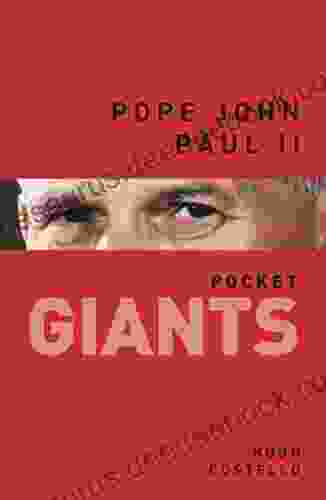Strategic Human Resource Management Perspective in Sport Management Series: A Comprehensive Exploration

In the competitive world of sports management, organizations that embrace a strategic human resource management (HRM) perspective gain a significant advantage. Strategic HRM aligns human capital practices with the overall business strategy, ensuring that the workforce is equipped to drive organizational success. This article delves into the critical aspects of strategic HRM in sport management, providing a comprehensive analysis of its impact on talent acquisition, performance management, employee engagement, leadership development, succession planning, and organizational culture.
4.7 out of 5
| Language | : | English |
| File size | : | 2141 KB |
| Text-to-Speech | : | Enabled |
| Screen Reader | : | Supported |
| Enhanced typesetting | : | Enabled |
| Word Wise | : | Enabled |
| Print length | : | 246 pages |
Talent Acquisition
Strategic HRM recognizes that attracting and retaining top talent is essential for organizational excellence in sport management. Organizations with a strong employer brand and a well-defined talent acquisition strategy are better positioned to secure the best candidates. This involves identifying the specific skills, experiences, and values that align with the organization's goals, and developing targeted recruitment initiatives to attract qualified professionals.
In sport management, talent acquisition often involves scouting for athletes, coaches, and other staff members with exceptional abilities and potential. By leveraging data analytics and building relationships with sports academies and universities, organizations can identify and nurture promising talent, creating a talent pipeline for future success.
Performance Management
Strategic HRM emphasizes the importance of setting clear performance expectations and providing regular feedback to employees. Effective performance management systems enable organizations to assess employee contributions, identify areas for development, and reward high performers. This process helps to ensure that the workforce is consistently delivering results and contributing to the achievement of organizational objectives.
In sport management, performance management often involves tracking athlete performance metrics, evaluating coaching effectiveness, and assessing the overall performance of teams and departments. Regular performance reviews provide an opportunity for managers to provide feedback, set goals, and identify areas for improvement, fostering a culture of continuous learning and growth.
Employee Engagement
Engaged employees are more motivated, productive, and committed to their work. Strategic HRM recognizes the importance of creating a work environment that fosters employee engagement, where individuals feel valued, respected, and supported.
In sport management, employee engagement can be fostered through initiatives such as team-building activities, recognition programs, and opportunities for professional development. By investing in employee well-being and creating a positive work culture, organizations can enhance employee satisfaction and loyalty, leading to increased productivity and reduced turnover.
Leadership Development
Strategic HRM emphasizes the development of strong leaders at all levels of the organization. Effective leadership is crucial for inspiring, motivating, and guiding employees towards achieving organizational goals. Organizations with a strategic HRM perspective invest in leadership development programs that identify high-potential employees and provide them with the necessary skills, knowledge, and experience to assume leadership roles.
In sport management, leadership development often involves mentoring programs, workshops, and on-the-job training opportunities. By investing in the development of future leaders, organizations ensure a smooth transition when current leaders retire or move on, safeguarding organizational continuity and success.
Succession Planning
Strategic HRM considers the long-term needs of the organization and recognizes the importance of succession planning. This involves identifying and developing successors for key leadership positions, ensuring a seamless transition and the sustainability of organizational performance.
In sport management, succession planning often involves identifying potential successors for coaches, managers, and other senior staff members. Through targeted development programs and mentoring relationships, organizations can prepare future leaders to assume leadership roles and maintain organizational stability.
Organizational Culture
Strategic HRM acknowledges the significant impact of organizational culture on employee behavior and organizational performance. A positive and values-driven organizational culture can attract and retain top talent, foster employee engagement, and enhance overall productivity.
In sport management, a strong organizational culture often emphasizes teamwork, respect, integrity, and fair play. By promoting these values throughout the organization, managers can create a work environment that is conducive to success, both on and off the field.
Strategic human resource management is a critical perspective that enables sport organizations to achieve their strategic goals and gain a competitive advantage. By aligning human capital practices with the overall business strategy, organizations can optimize talent acquisition, enhance performance management, foster employee engagement, develop strong leaders, ensure effective succession planning, and cultivate a positive organizational culture. Embracing a strategic HRM perspective is essential for sport organizations that seek to sustain long-term success in the highly competitive sporting industry.
By implementing the principles of strategic HRM, sport organizations can unlock the full potential of their human capital, create a high-performing workforce, and achieve organizational excellence.
4.7 out of 5
| Language | : | English |
| File size | : | 2141 KB |
| Text-to-Speech | : | Enabled |
| Screen Reader | : | Supported |
| Enhanced typesetting | : | Enabled |
| Word Wise | : | Enabled |
| Print length | : | 246 pages |
Do you want to contribute by writing guest posts on this blog?
Please contact us and send us a resume of previous articles that you have written.
 Book
Book Novel
Novel Page
Page Chapter
Chapter Reader
Reader Newspaper
Newspaper Paragraph
Paragraph Bookmark
Bookmark Shelf
Shelf Bibliography
Bibliography Foreword
Foreword Preface
Preface Synopsis
Synopsis Annotation
Annotation Footnote
Footnote Codex
Codex Tome
Tome Bestseller
Bestseller Classics
Classics Library card
Library card Encyclopedia
Encyclopedia Thesaurus
Thesaurus Narrator
Narrator Character
Character Librarian
Librarian Catalog
Catalog Periodicals
Periodicals Study
Study Research
Research Journals
Journals Reading Room
Reading Room Rare Books
Rare Books Special Collections
Special Collections Interlibrary
Interlibrary Thesis
Thesis Dissertation
Dissertation Awards
Awards Reading List
Reading List Book Club
Book Club Textbooks
Textbooks Susan Crandall
Susan Crandall Deanna Chase
Deanna Chase Warwick Anderson
Warwick Anderson Alex Hahn
Alex Hahn June Mccrary Jacobs
June Mccrary Jacobs Bernd S Koehling
Bernd S Koehling Mark Bacera
Mark Bacera Ginger Gelsheimer
Ginger Gelsheimer Ethan Zuckerman
Ethan Zuckerman Barry Denenberg
Barry Denenberg Olena Beckett
Olena Beckett Harry W Kopp
Harry W Kopp Chris Blake
Chris Blake Dean Feldmeyer
Dean Feldmeyer Andrew Brown
Andrew Brown Dennis R Shealy
Dennis R Shealy Deepak Gupta
Deepak Gupta Brett A Blake
Brett A Blake Emma Donoghue
Emma Donoghue Dagoberto Gilb
Dagoberto Gilb
Light bulbAdvertise smarter! Our strategic ad space ensures maximum exposure. Reserve your spot today!

 Reginald CoxBritten Operas and the Great Divide: California Studies in 20th Century Music...
Reginald CoxBritten Operas and the Great Divide: California Studies in 20th Century Music...
 George R.R. MartinThe Castle of Andalusia: An Immersive Adventure into Opera's Enchanting...
George R.R. MartinThe Castle of Andalusia: An Immersive Adventure into Opera's Enchanting...
 Vernon BlairThe Anatomy Lesson: A Comprehensive Exploration of Nina Siegal's Captivating...
Vernon BlairThe Anatomy Lesson: A Comprehensive Exploration of Nina Siegal's Captivating... Brandon CoxFollow ·15.9k
Brandon CoxFollow ·15.9k Alfred RossFollow ·12.6k
Alfred RossFollow ·12.6k Ted SimmonsFollow ·9.6k
Ted SimmonsFollow ·9.6k Jonathan HayesFollow ·10.4k
Jonathan HayesFollow ·10.4k Alvin BellFollow ·8.8k
Alvin BellFollow ·8.8k Anton ChekhovFollow ·8.6k
Anton ChekhovFollow ·8.6k Hamilton BellFollow ·3.3k
Hamilton BellFollow ·3.3k Natsume SōsekiFollow ·13.3k
Natsume SōsekiFollow ·13.3k

 Gary Reed
Gary ReedWeb to Web for Beginners: A Comprehensive Guide to...
In today's interconnected world, websites...

 Elliott Carter
Elliott CarterThe Moon Is Down: John Steinbeck's Poignant Portrait of...
In the annals of literature, John...

 Dalton Foster
Dalton FosterMark The Mechanic: The Incredible Story Of A Young...
In the vibrant realm of robotics, where...

 Fred Foster
Fred FosteriPhone 13 Pro Max User Guide: Everything You Need to Know
The iPhone 13 Pro Max...

 Rodney Parker
Rodney ParkerPope John Paul II: The Pocket Giant Who Inspired Millions
Pope John Paul II, or...
4.7 out of 5
| Language | : | English |
| File size | : | 2141 KB |
| Text-to-Speech | : | Enabled |
| Screen Reader | : | Supported |
| Enhanced typesetting | : | Enabled |
| Word Wise | : | Enabled |
| Print length | : | 246 pages |








